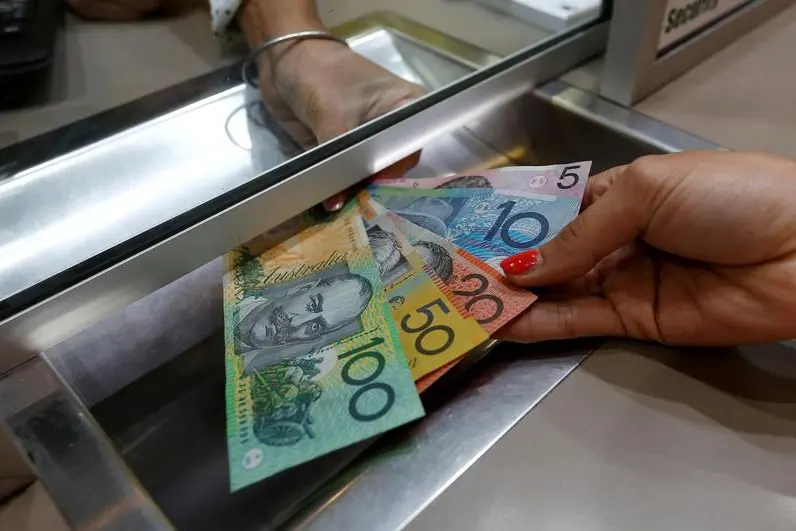PHOTO
The Australian dollar held hefty weekly gains on Friday as markets priced in higher interest rates at home, while optimism over China's reopening whetted risk appetites globally.
The Aussie stood at $0.7125, having gained 2.2% on the week so far to reach highs not seen since June at $0.7142. The next bull target is $0.7282, with support at $0.7063.
The kiwi dollar lagged at $0.6495, having firmed 0.3% for the week. It faces resistance at $0.6530, with support around $0.6458.
The Aussie rally was broad with a 2.5% jump on the Japanese yen and a 1.8% rise on the euro. The currency is up almost 15% on the dollar since October, in part thanks to China's surprise decision to abandon zero-COVID.
It also hit a 20-month peak on the Canadian dollar after the Bank of Canada became one of the first developed nation central banks to pause its tightening campaign.
In contrast, markets have sharply narrowed the odds on further hikes from the Reserve Bank of Australia (RBA) following a surprisingly high reading for inflation in the fourth quarter.
Swaps imply around a 90% chance the RBA will lift rates a quarter point to 3.35% when it meets on Feb. 7, and have raised the peak for rates to 3.60% to 3.85%.
Headline consumer prices climbed 7.8% in the year to December, while a key core measure jumped to 6.9%.
"Non-tradables and services inflation accelerated, both annualising around 8.5% y/y, and these measures better reflect underlying and domestically driven inflationary pressures," said Catherine Birch, a senior economist at ANZ.
"This cements a 25bp cash rate hike in February and supports our view of another 25bp hike in March, especially if we see a solid print for Q4 wages in mid-February as expected."
Three-year bond yields have duly climbed to 3.16%, after touching a five-month low of 2.91% ahead of the inflation data.
Over in New Zealand, markets have gone the other way in lengthening the odds on a super-sized rate hike in February after inflation proved less alarming than feared.
Futures now heavily favour a half-point hike to 4.75%, rather than a move of 75 basis points, and have lowered the likely top for rates to 5.25% from 5.5%. "The acceleration in inflation that the central bank was forecasting has not eventuated," said Michael Gordon, an economist at Westpac. "Signs of a downturn in demand are developing and, with mounting pressure on household balance sheets, a stark slowdown in economic activity is expected over the coming year." (Reporting by Wayne Cole; Editing by Shri Navaratnam)





















